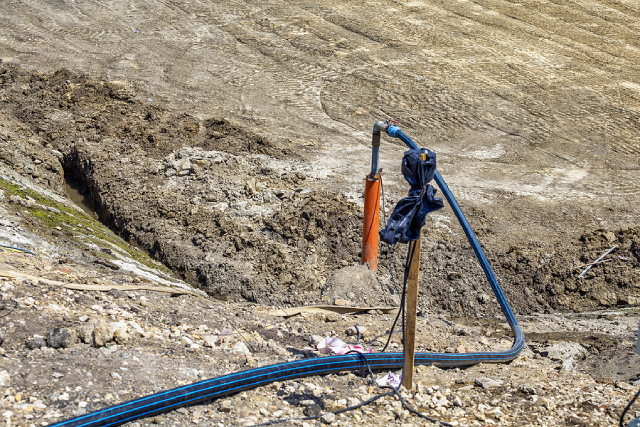4 Vital Questions To Ask When Searching For The Right Pump

Using suitable pumps is a crucial factor when completing a dewatering project. Whatever the project, it is easier and quicker when the proper tools are utilised. For instance, when cleaning and maintaining a facility, looking for the correct type of high pressure cleaner in Singapore is the key to accomplishing the job much faster. This hypothesis applies no matter how simple or complex the project is.
When it comes to a project as complex as dewatering a construction site, having sufficient technical knowledge and using highly specialised equipment are necessary. Here are some of the essential questions you should seek the answers to when searching for the right pump for your dewatering project.
1. How do you identify the proper equipment for the project?Identifying the proper equipment for the dewatering project begins by asking questions. For one, you should determine what you are hoping to accomplish. In completing any project, this is always a great place to start. In the case of a dewatering application, it is beneficial to understand where you should begin in terms of equipment.
What kind of fluid will you be pumping? What is available in terms of power? Is there electricity? What does the pump site look like? Is it easily accessible? These are the kinds of questions you should ask regarding the right equipment your project requires. Aside from this, you should also be familiar with the potential applications of the pump, whether for excavation dewatering, stream diversion, groundwater removal, etc.
Take note that there is a great variety of water pumps out there. Some are designed to deal with a wide range of applications, while others are engineered for specific use. Ultimately, the most important thing here is an excellent understanding of the requirements of your particular application.
2. What type of fluid will be pumped?The type of fluid you will pump is another vital factor. You must know the fluid's weight to ensure the pump has adequate power to draw the liquid through. In many instances, different fluid types can be found at the same construction site. Along with the fluid, construction materials, sludge, and other insoluble materials must also be pumped.
Aside from the weight, identifying the pH level is also crucial to understanding the fluid. The pH level measures how basic or acidic the water is. It ranges from 0 to 14, with 7 being the neutral measure. The farther the pH level is from the neutral 7, the more chemical impact the fluid will have on the pump's internal components. To combat this, correct material selection on pump internals is a must.
3. Is the pump easily transportable?Most pumps are skid-mounted or trailer-mounted. A trailer-mounted pump system is typically easy to transport but often takes up additional space on the job site. Moreover, an electric pump will not suit your needs if there is no sufficient power source nearby. In such a case, you may consider the option of solar water pumps.
If you are pumping uphill, another critical factor to consider is the static discharge. Static discharge refers to the vertical distance of the source of the fluid you are pumping from its destination.
Ultimately, the formulas above are what you can use to determine the suitable types of pump based on several factors, such as the lift needed, elevation, and the fluid's required travelling distance.
4. What is the performance curve?Every pump has its own performance curve chart. This chart indicates how a pump moves much volume over time under a specific pressure rating. The volume over time is typically measured in m3/h, l/s, or GPMs (gallons per minute), and the chart usually indicates the pump's flow rate as a particular pump outlet pressure. This is called the operating pump point or the pump duty point.
Based on application criteria like the desired flow rate and elevation to overcome as the distance of travelling fluid, the pump duty point continuously varies. Knowing this is important because the application is time-contingent most of the time. This means that you only have a specific amount of time to transport the fluid from Point A to Point B. If your pump does not supply you with the required flow rate, completing your job will undoubtedly be far more challenging.
Conclusion
The things discussed in this article are some of the most important questions you should be asking when finding the right pump for your application. Ultimately, the best action to take is to seek professional help to ensure that the dewatering pump you have chosen is the right one you need. Like any other equipment such as turbine pumps and air compressors in Singapore, dewatering pumps come in a variety. So, having enough knowledge about their differences is necessary.

